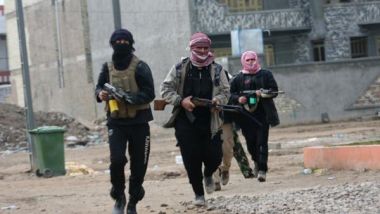Archeologist expresses concern over fate of ancient Assyrian city of Khorsabad under ISIS

An Assyrian archeologist expressed concern that the Islamic State may turn its attention next to the ancient Assyrian citiy of Khorsabad after the militants destroyed the city of Nimrud.
A video released over the weekend by the Islamic State of Iraq and Syria, or ISIS, revealed that the extremist group had totally destroyed the city of Nimrud, which archeologists estimate to have been existence since the 13th century BC.
The video, which the Daily Mail described as "expertly edited," showed militant fighters systematically destroying the ruins of the ancient city with sledgehammers, bulldozers and explosives.
Nineveh Yakou, Assyrian archaeologist and director of cultural heritage and indigenous affairs at campaign group A Demand for Action, told IBTimes UK that the destruction most likely took place on April 2.
Iraq's Ministry of Tourism and Antiquities had released a statement in March stating that the militants had "bulldozed" Nimrud after looting its artifacts.
Yakou condemned the destruction of Nimrud, stating that ISIS has "no right" to do so.
"They're destroying civilisation from it's ancient epicentre," she told IBTimes UK. "They have no right to do what they're doing."
Yakou said she was worried that the militants would destroy two other ancient Assyrian cities, Hatra and Khorsabad, next together with the walls of Nineveh.
Hatra was also reportedly levelled by ISIS fighters at the same time as Nimrud in March. ISIS released a new propaganda video earlier this month that showed its fighters destroying artifacts in Hatra, which dates back to 200-300 BC and is known for its unique architecture that blends Hellenstic and Roman styles with Eastern decorative features.
IBTimes UK said that the Hatra video showed the city with less damage than was reported in March.
The Ministry of Tourism and Antiquities reported last month that Khorsabad had also been destroyed by "those gangs and their sick Takfiri ideology," apparently referring to ISIS militants.
Khorsabad dates back to 717-706 BC, and is known for the "well-preserved paint" on its reliefs.











